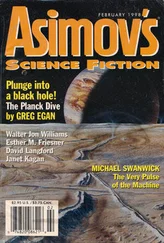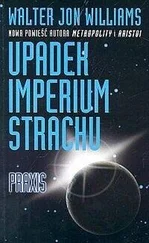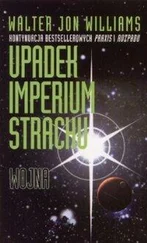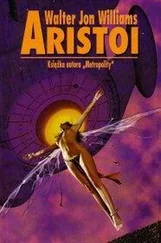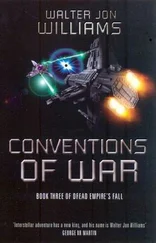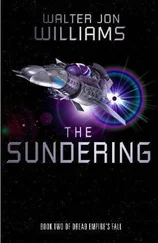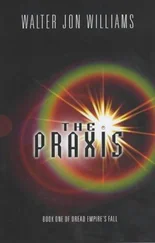Walter Williams - Logs
Здесь есть возможность читать онлайн «Walter Williams - Logs» весь текст электронной книги совершенно бесплатно (целиком полную версию без сокращений). В некоторых случаях можно слушать аудио, скачать через торрент в формате fb2 и присутствует краткое содержание. Жанр: Фантастика и фэнтези, на английском языке. Описание произведения, (предисловие) а так же отзывы посетителей доступны на портале библиотеки ЛибКат.
- Название:Logs
- Автор:
- Жанр:
- Год:неизвестен
- ISBN:нет данных
- Рейтинг книги:4 / 5. Голосов: 1
-
Избранное:Добавить в избранное
- Отзывы:
-
Ваша оценка:
- 80
- 1
- 2
- 3
- 4
- 5
Logs: краткое содержание, описание и аннотация
Предлагаем к чтению аннотацию, описание, краткое содержание или предисловие (зависит от того, что написал сам автор книги «Logs»). Если вы не нашли необходимую информацию о книге — напишите в комментариях, мы постараемся отыскать её.
Logs — читать онлайн бесплатно полную книгу (весь текст) целиком
Ниже представлен текст книги, разбитый по страницам. Система сохранения места последней прочитанной страницы, позволяет с удобством читать онлайн бесплатно книгу «Logs», без необходимости каждый раз заново искать на чём Вы остановились. Поставьте закладку, и сможете в любой момент перейти на страницу, на которой закончили чтение.
Интервал:
Закладка:
"Maybe it's was a gift from someone he cared for."
"A cultist he cared for," Martinez muttered.
He leaned back in his chair and followed his chain of reasoning again, piece by piece. No part of it was implausible by itself, he decided, and therefore his ideas were better than any other theory that had come his way.
Much of it had to do with the way the Praxis viewed cults, and the way that the servants of the Praxis had interpreted their duty.
The Shaa had believed in many things, but they did not believe in the numinous. Any cult that promoted a belief in the supernatural was, by definition, a violation of the Praxis and was illegal. When the Shaa conquered Terra, they had found the place swarming with cults, and had acted over time to suppress them, moving gradually over several generations. Meeting houses of the faithful had been torn down, turned to secular use, or converted to museums. Believers were dismissed from government and teaching posts. Cult literature was confiscated and its reproduction forbidden. Cult organizations were disbanded, any professional clergy dismissed, and schools of instruction shut down.
Any believer determined on martyrdom was given ample opportunity to exercise his choice.
Cults had never vanished, of course. The Shaa, who were not without their own shrewd intelligence, had perhaps never expected they would. But by forbidding the spread of doctrine, by forbidding professional clergy and houses of worship, by forbidding the reproduction of literature and cult objects, they had turned what had been by all accounts a thriving business into a strictly amateur affair. If there were meetings, they were small meetings that took place in private homes. If there were clergy, they had no opportunity for specialized study, and had to hold regular jobs. If there was literature, it was copied clandestinely and passed from hand to hand, and errors crept in and many texts were incomplete.
Believers were usually not harassed as long as they did not practice in public or proselytize, and in time learned discretion. Though belief was not destroyed, its force was reduced, and in time cults became indistinguishable from superstition, a set of arcane and irrational practices designed to achieve the intervention of who knew what against the inflexible workings of an unknowable fate. Over the centuries the supernatural had simply ceased to be a threat to the empire.
Marsden returned within a few moments, carrying a pair of grey plastic boxes. "I assumed you wanted possessions other than clothing, my lord," he said. "If you want to examine the clothing as well, may I requisition a hand truck?"
That would be for Kosinic's trunks containing the amazing number of uniforms required of an officer, plus his personal vac suit. Thuc would have had fewer uniforms, and used a vac suit from the ship's stores.
"The pockets would have been emptied, and so on?" Martinez asked.
"Yes, lord captain. Pockets are looked through, and other places where small items might be found, and anything discovered put in these boxes."
"I won't need the clothing, then. Put the boxes on my desk."
Martinez opened Kosinic's box first. He found a ring from the Nelson Academy, from which Martinez had graduated before Kosinic arrived, and a handsome presentation stylus, brushed aluminum inlaid with unakite and jasper, and engraved "To Lieutenant Arthur Kosinic, from his proud father." There was a shaving kit, a modestly-priced cologne, a nearly-empty bottle of antibiotic spray that a doctor had probably given him for his wounds. Martinez found some fine paper, brushes, and watercolor paints, and looked at several finished watercolors, most planet-bound landscapes of rivers and trees, but including one recognizable impression of Fulvia Kazakov sitting at a table in the wardroom. To Martinez' unpracticed eye none of the watercolors seemed particularly expert.
In a small pocketbook were a series of foils, neatly labeled, that held music and other entertainments. At the bottom of the box was a small pocket-sized datapad, which Martinez turned on. It asked for a password, but Martinez wasn't able to provide one. He slotted his captain's key into it, but the datapad was a private one, not Fleet issue, and wouldn't recognize his authority. Martinez turned it off and returned it to the box.
The few belongings, the cologne and the academy ring and the inexpert watercolors, seemed to add up to an inadequate description of a life. Whatever had most mattered to Kosinic, Martinez thought, it probably wasn't here: his passions remained locked in his brain, and had died with him. Martinez looked again at the stylus, sent by the father who might not yet know that his son had been killed, and closed the box on Kosinic's life.
He turned to the box labeled Thuc, H.C., Master Engineer (deceased), and found what he was looking for right on top.
A small enameled pendant in the form of a tree with green and red blossoms, hanging from a chain of bright metal links.
"I think there was a group of Narayanists on Illustrious," Martinez explained to Michi Chen. "I think Captain Fletcher was one of them. He wore a Narayanist symbol around his neck, and he had a huge statue of Narayanguru in his sleeping cabin. I think he adopted the pose of a collector of cult art so that he could collect Narayanist artifacts legally, and he covered his activities by collecting artifacts from other cults as well."
"If you insist on that theory," Michi said, "You're going to have trouble with the Gombergs and Fletchers, maybe even a suit in civil court."
"Not if I'm right, I won't," Martinez said. "If there are Narayanists in either of those families, we won't hear a word from them."
Michi nodded silently. "Go on," she said.
He had asked Michi into his office on a confidential matter, and she had been surprised on her arrival to find Marsden and Jukes present.
"I think I know why Captain Fletcher was killed, but you'll have to be patient," Martinez began.
"I've been patient so far," Michi said. Martinez could have quibbled with that, but decided against it. He called to Perry to bring out coffee and snacks, and ordered Marsden to record the meeting and take notes.
"I think there were, perhaps still are, a number of Narayanists aboard," Martinez said. "Captain Fletcher protected them. Somehow Kosinic found out about at least some of this, though possibly he didn't know the captain was a part of the arrangement. As Kosinic's knowledge was now a menace to the cultists, one of them-Thuc-killed Kosinic."
Michi nodded. "Very well," she said.
"It was a masterfully done murder, and we would never have found out about it if Captain Fletcher wasn't killed the same way and made us suspicious."
Perry and Alikhan arrived at that moment with coffee and little triangular pastries, and Martinez fell silent while everyone was served. He took an appreciative taste of the coffee and felt heat flush at once to the surface of his skin. He could feel his theories boiling in his skull, and he wanted to let them escape; he was so impatient that it took an effort to compliment Perry on the coffee. Finally the two left the room and he was able to continue.
"We know that Thuc was a Narayanist because he, too, wore a Narayanist medallion. I think that once Kosinic was killed, Captain Fletcher began to realize that he was in a bad spot. All it would take would be a little indiscretion on the part of a petty officer, and Fletcher would be implicated in the death of a fellow officer-and not just any officer, but a member of the squadron commander's staff.
"He couldn't indict Thuc, because any public proceedings would expose his own membership in the cult. So he used his officers' privilege and executed Thuc during the course of an inspection. You didn't see him do it, but I did-and it was very clearly premeditated, and very cold-blooded. He'd obviously practiced cutting Thuc's throat many times before he performed it."
Читать дальшеИнтервал:
Закладка:
Похожие книги на «Logs»
Представляем Вашему вниманию похожие книги на «Logs» списком для выбора. Мы отобрали схожую по названию и смыслу литературу в надежде предоставить читателям больше вариантов отыскать новые, интересные, ещё непрочитанные произведения.
Обсуждение, отзывы о книге «Logs» и просто собственные мнения читателей. Оставьте ваши комментарии, напишите, что Вы думаете о произведении, его смысле или главных героях. Укажите что конкретно понравилось, а что нет, и почему Вы так считаете.

